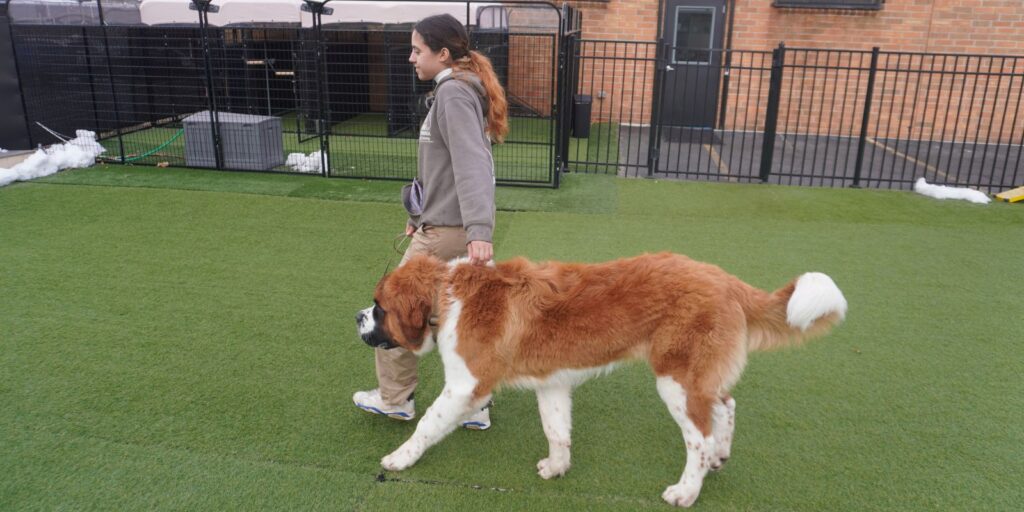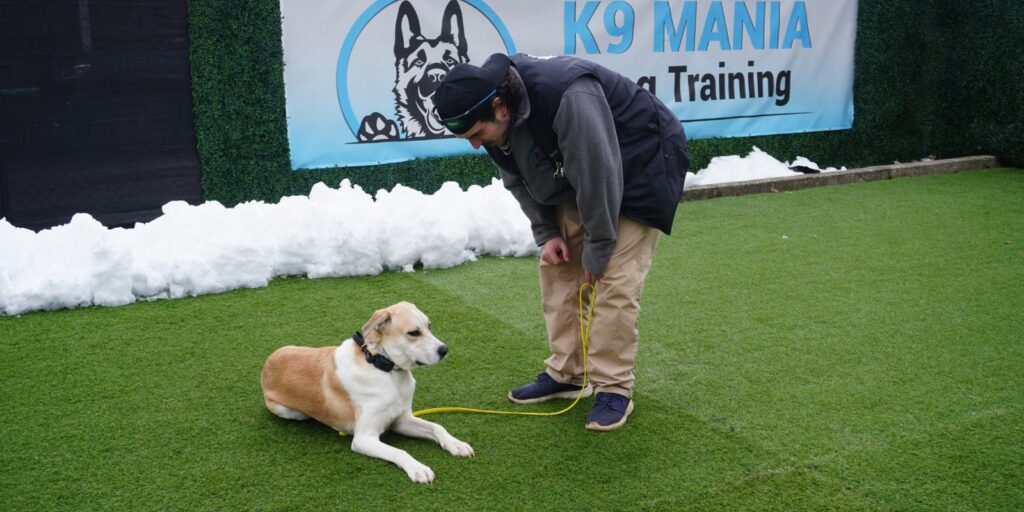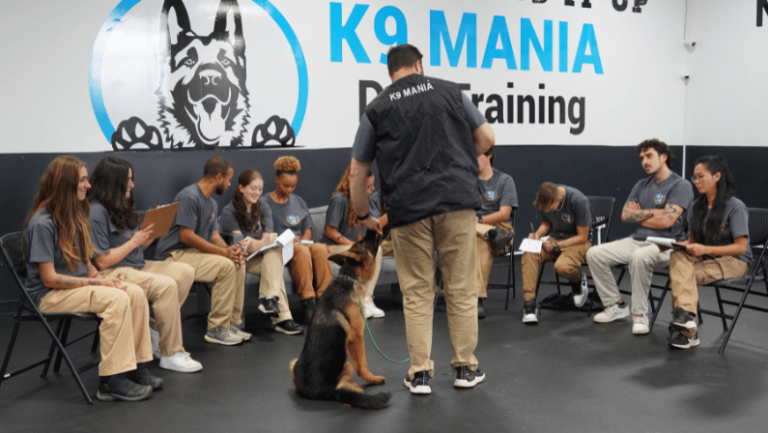
Limited Financial Gains in the Early Stage
Starting a career in dog training often involves facing financial challenges upfront. Investing in certifications, equipment, and marketing while balancing limited income from early clients requires careful planning and perseverance.
However, trainers can mitigate these challenges by seeking alternative revenue streams, such as offering group training sessions and creating online courses. Diversifying income sources can help trainers sustain themselves financially while building their reputation and clientele in the dog training business.
Difficult Clients
Navigating challenging client interactions is a common hurdle for a dog trainer starting their career in obedience training. Despite their expertise in working with dogs, trainers may encounter clients with unrealistic expectations or resistance to training methods.
Effective communication and patience are important in addressing these situations. Dog trainers must adjust their approach, educate clients on realistic outcomes, and establish clear boundaries to ensure success in their dog training business. While managing difficult clients can be daunting, it provides valuable opportunities for growth in skills crucial for a fulfilling career in dog training.
Difficult Clients
Becoming a successful dog trainer requires a significant investment of time and effort. It’s important that dog trainers work to dedicate hours to studying canine behavior, mastering obedience training techniques, and gaining practical experience working with dogs.
Additionally, building a thriving dog training business demands time for marketing, client consultations, and administrative tasks. While the time investment can be weighty, it is essential for honing skills, establishing credibility, and growing a rewarding career in dog training. Time spent developing expertise and nurturing client relationships ultimately contributes to the success and longevity of a trainer’s work with dogs

Physical Demands
Working as a dog trainer entails significant physical demands. Often, trainers work long hours on their feet, actively engaging with dogs during training sessions. This work can involve repetitive motions such as bending, kneeling, and walking, which may lead to physical strain and fatigue.
Additionally, trainers work with dogs of various sizes and temperaments, requiring strength and agility to manage them effectively. While the physical demands of the job can be challenging, they are an integral part when having to work with dogs and building a successful career in dog training. Dog trainers must prioritize self-care and proper technique to ensure their physical well-being while fulfilling their passion to work with dogs.
Lack of Formal Training Programs
One of the challenges faced by those who aspire to train dogs is the limited availability of formal training programs tailored to their career path. While there are numerous resources and certifications for general dog care and obedience training, specific programs focusing on the nuances of building a career in the dog training business may be scarce.
At K9 Mania Dog Trainer Academy, we offer comprehensive training programs designed to equip those who aspire to train dogs with the expertise needed for a successful career in dog training. From foundational courses on canine behavior and obedience training to advanced programs focusing on specialized techniques, our academy provides hands-on learning experiences tailored to meet the needs of aspiring trainers.
Ongoing Education
In the dynamic field of dog training, continuous learning is essential for staying updated on the latest techniques and methodologies. Aspiring dog trainers must invest in ongoing education to enhance their skills and knowledge. This involves attending workshops, seminars, and courses to deepen their understanding of canine behavior and obedience training methods.
Additionally, staying informed about advancements in the industry enables trainers to adapt to evolving client needs and preferences. By prioritizing ongoing education, trainers can maintain their expertise, build credibility in their career in dog training, and provide high-quality services to their clients.
Emotional Strain
Working as a dog trainer can also entail significant emotional strain. Dog trainers may encounter challenging situations such as dealing with aggressive dogs, witnessing dog-owner conflicts, or facing the loss of canine companions. The responsibility of ensuring the well-being of both dogs and their owners can weigh heavily on trainers, leading to stress and emotional exhaustion.
Moreover, forming deep bonds with the dogs they train can make it emotionally taxing to part ways at the end of a program. Despite these challenges, dog trainers must remain resilient and seek support when needed to navigate the emotional demands of their career in dog training. Recognizing and addressing emotional strain is essential for maintaining mental well-being and providing effective training for dogs and their owners.
Variable Working Hours
One of the unique aspects of a career in dog training is the variability of working hours. Dog trainers often need to accommodate clients’ schedules, which may include evenings, weekends, and holidays. This flexibility is essential for meeting the diverse needs of dog owners and ensuring effective training sessions.
However, it also means that trainers must be prepared for irregular and sometimes long hours. Balancing work commitments with personal life can be challenging, requiring careful time management and self-care strategies. Despite the unpredictable nature of their schedules, trainers find fulfillment in the rewarding work of training dogs and helping owners build strong bonds with their dogs.
Business Management
In addition to mastering obedience training techniques, successful dog trainers must also possess strong business management skills to promote their services to attract clients effectively. Establishing and running a dog training business involves tasks such as marketing, client communication, scheduling, and financial management.
Additionally, understanding pricing strategies and budgeting is crucial for sustaining profitability and growth in the competitive field of dog training. Despite how challenging, honing business management skills is essential for maximizing success in both their career in dog training and their dog training business.
Location and Mobility
For dog trainers, the challenges of location and mobility can significantly impact their ability to reach clients and grow their business. Depending on their geographic location, trainers may face limitations in accessing potential clients or establishing a physical training facility.
Additionally, mobility constraints can arise when trainers need to travel to clients’ homes or conduct outdoor training sessions. Adapting to different environments and accommodating clients’ needs while maintaining a consistent level of service can be demanding. Dog trainers must devise strategies to overcome these challenges, such as offering online consultations, mobile training services, or collaborating with local dog-related businesses to expand their reach.
Navigate the Path to Success with K9 Mania
The journey to becoming a dog trainer is filled with obstacles, from financial constraints to emotional strain and the intricacies of business management. Yet, each challenge serves as a stepping stone for personal and professional growth, molding passionate individuals into skilled professionals capable of making a lasting impact in the world of dog training.
At K9 Mania Dog Trainer Academy, we recognize these challenges and provide comprehensive training programs tailored to equip aspiring trainers with the knowledge and skills needed for success. Our commitment to excellence ensures that graduates are well-prepared to navigate the complexities of the field and build thriving careers. Join us at K9 Mania Dog Trainer Academy, and let us help you turn your passion into a rewarding profession.
Ready to take the first step towards your dream career in dog training? Contact us today to learn more about our programs and start your journey toward becoming a certified dog trainer!




